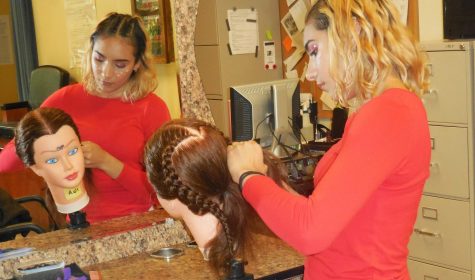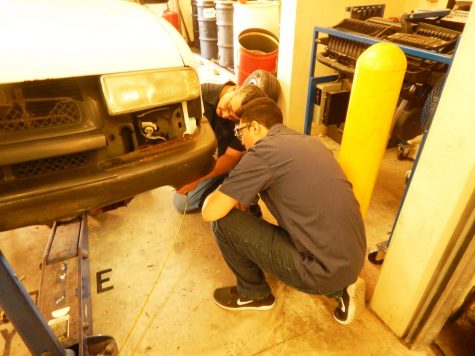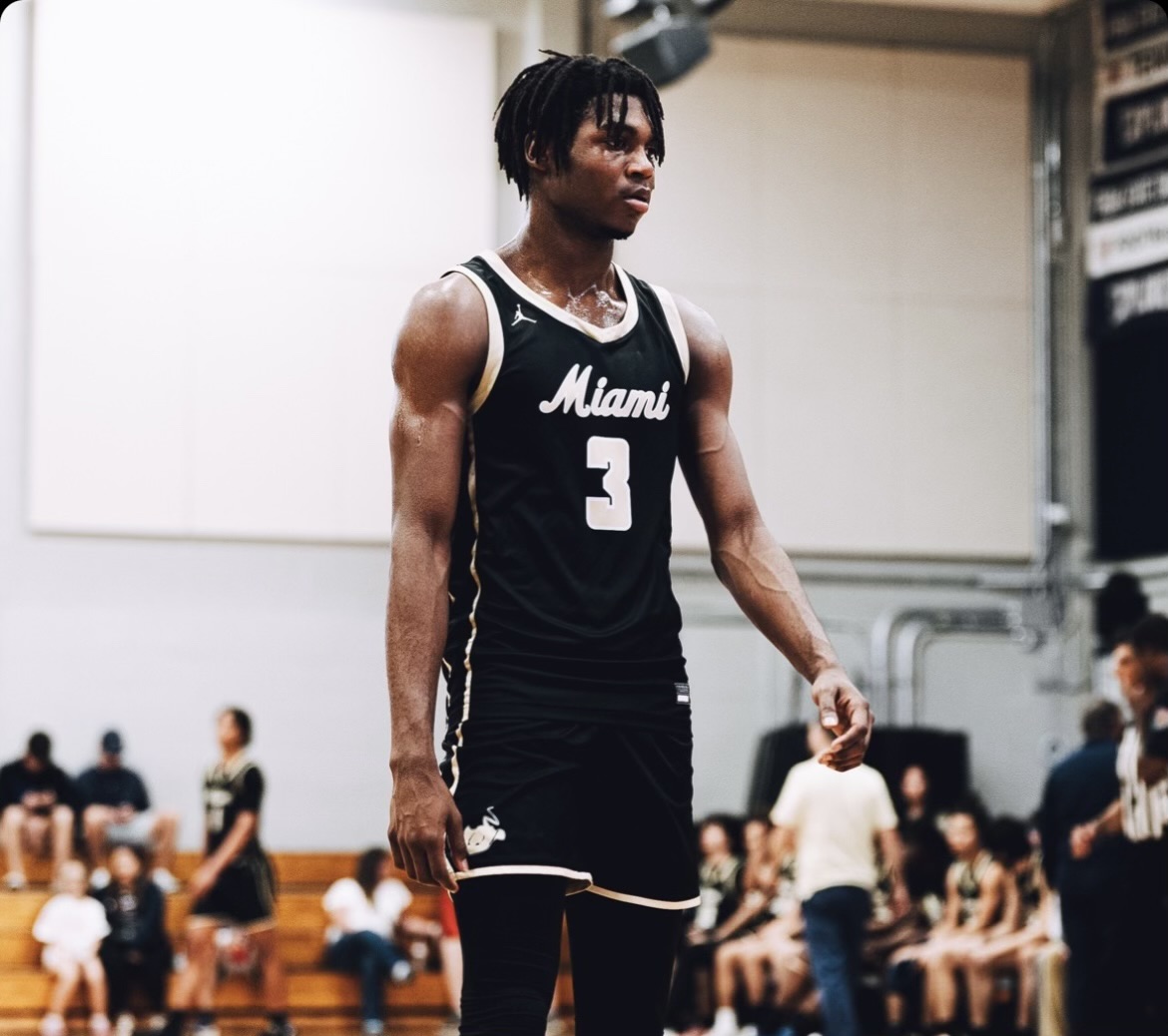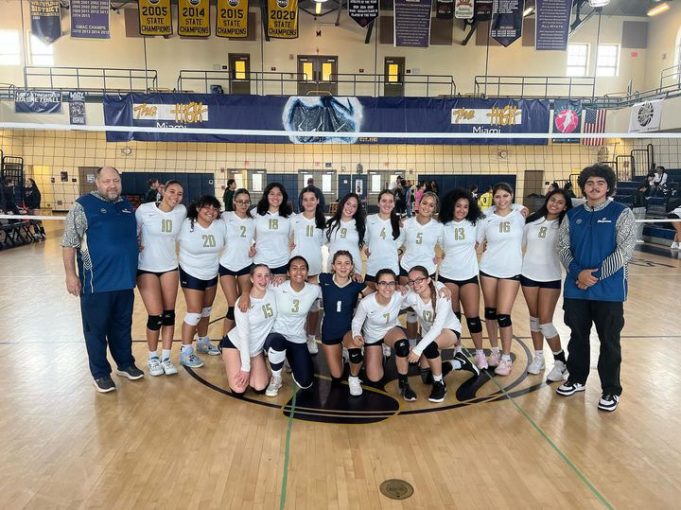Is college for everyone?
February 14, 2019
Do you know what you will do for the rest of your life after high school? Some students have a rough general idea, while others know the exact training and area of study to succeed in the career that they have chosen. For many students, college has always been advertised to be the be-all-and-end-all to a successful and great life, while others go against the usual and don’t always do what is expected of them. They make their own destiny without the aid of college or the financial instability it can sometimes bring with it.
Junior Daniel Garcia, who is one of the top students in our automotive technology program, has a plan after high school to go to continue his automotive training and to go to college for a degree in mechanical engineering. This was not always the case because, having friends that are in college currently, he said, “The workload was a lot to process at first. However, if you go and conquer this obstacle, you will benefit in the long run to obtain things like a flexible salary, an enjoyable work environment, and the possibility to work from home.”
Cosmetology teacher Ms. Northcut is an advocate for both college and vocational school, having done both in her career. She believes that there are certain things that cannot be taught in a vocational program such as business, mathematics, computer skills, and soft skills.
Training for your career
Many students know what it takes to enter their chosen careers. Daniel Garcia’s career as a mechanical engineer requires a bachelor’s degree and 6 levels of training to obtain an Automotive Service Excellence (ASE) certification. Sophomore Marvin Turner wants to be a physical therapist. This career requires a bachelor’s degree minimum to do. Junior Andrea Nolasco wants to be a journalist which also requires a bachelor’s degree to get into.
Benefits of college
Many Miami High students believe college will benefit them. Andrea Nolasco believes college will get her ready for the world, provide an opportunity to expand her knowledge, and bring her one step closer to achieving her career. The thought of not attending college has never been a thought in her mind because she would be the first in her house to attend college and she does not want to let them down. It is what she has been looking forward to her whole life.

College or vocational school
Cosmetology teacher Ms. Northcut is an advocate for both college and vocational school, having done both in her career. She believes that there are certain things that cannot be taught in a vocational program such as business, mathematics, computer skills, and soft skills.
Automotive teacher Mr. Aguiar believes college could benefit people who need college, but also believes that all education benefits everyone in different ways. Some prefer being taught theoretically and verbally while others prefer doing things with their hands.
CAP advisor Ms.Puentes believes that college is not the path for everyone. She stated, “Everyone needs to have a plan that matches their strengths.”

What options do students have if they do not attend college?
Mr. Aguiar believes you can work straight out of high school or learn from an expert. However, you have to keep in mind that you can only learn from an expert at a trade school or college, stated automotive teacher Mr. Bello. otherwise you will just be working as a laborer, someone who works without obtaining any skills.
Ms. Northcut also believes some students could go to trade school, but they could also do job shadowing where they identify a person with an interesting job and, with their permission, see what they do and how they do it.
Ms. Puentes recommends 3 options if students do not attend college: attend trade school, join the military, or go into the workforce. However, the workforce should not be their first option because they could get stuck there for years. With the military, not all positions are combat- related so some people join and find a job that they really love. Also the military could pay for your schooling.





